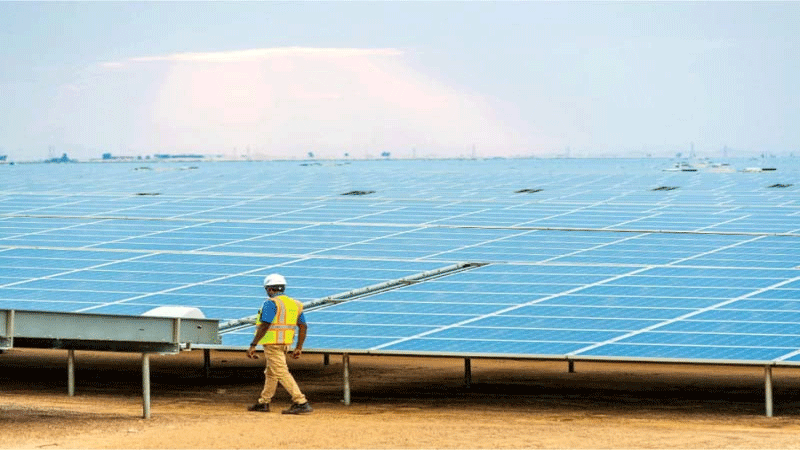The government targeted increasing its share to 20% by 2025 and 30% by 2030 and has published detailed plans in IGCEP 2022–31 and Alternative and Renewable Energy Policy.

In an effort to provide consumers with low cost electricity and combat climate change, Pakistan has planned to add 14,000 megawatts of renewable energy (RE) to the national grid over the next ten years.
Speakers at a Renewables First webinar on “Accelerating Chinese Renewable Energy Investment in Pakistan” on Monday emphasised the significance of developing an environment that will draw Chinese capital to wind and solar power projects.
Shah Jahan Mirza, CEO of the Alternative Energy Development Board (AEDB), emphasised Pakistan’s enormous potential to produce renewable energy.
According to him, Pakistan has an ambitious plan to add 14,000 MW of wind and solar energy to the grid over the course of the next ten years in order to provide consumers with low cost electricity.
In a statement from the webinar’s organisers, Mirza was quoted as saying that Chinese investors ought to be pushed to take the lead in “developing the RE market of Pakistan, they could play a significant role.”
Tauseef H. Farooqi, chairman of the National Electric Power Regulatory Authority (Nepra), said during the event that, ” Chinese investors would be crucial to Pakistan’s efforts to privatise energy distribution, modernise transmission, and incorporate the least expensive solar and wind energy into its electricity mix. He said, “We are extremely optimistic about the potential of Chinese investment in renewable energy.”
Goldwind Menat Region General Manager Xiaohui Ma said that, Pakistan’s wind power industry has been dealing with a number of issues, such as the unannounced moratorium on the import of renewable energy equipment, despite the regulatory environment and incentive structure being favourable for investments in renewable energy.
China’s Three Gorges South Asia Investment Limited Deputy CEO Noorul Arifeen Zuberi urged the government to refocus on both wind and solar PV and develop ambitious plans and frameworks to maximise their benefits for Pakistan.
He also highlighted the need for a streamlined project development process and the removal of barriers through close collaboration and effective engagement with stakeholders. He also called for private sector investment in transmission and distribution as a solution to the bottlenecks in the way of greater renewable energy integration.
The discussion focused on redirecting Chinese investment in Pakistan‘s energy sector from coal to clean energy. In February 2023, Pakistan’s total energy production was 7,756 GWh, with a 5% share of renewable energy.
The government has targeted increasing its share to 20% by 2025 and 30% by 2030 and has published detailed plans in the IGCEP 2022–31 and the Alternative and Renewable Energy Policy. However, some experts think Pakistan is moving too slowly on brand-new renewable energy initiatives.
According to an expert, Pakistan will continue to be heavily dependent on (expensive) fossil fuel-based power projects over the next 10 to 20 years because “we are far from meeting the goals of 20% renewables in the energy mix by 2025 and 30% by 2030.”
An increase in green projects, he said, “will help the country gradually take control of the burgeoning circular debt, provide consumers with low cost electricity and capacity payments as well, since renewable energy projects don’t use any fuel.”
A total of $4.79 billion had been invested globally and domestically in renewable energy as of June 2021, of which $786 million went to solar, $3,752 million went to wind, and $258 million went to bagasse. Over the next two years, $866 million is anticipated to be invested in the upcoming renewable energy projects (solar, wind, and bagasse).
Since international buyers are concerned about greenhouse gas emissions and their effects on the world, the use of renewable energy can also help boost exports. Around 1% of global warming is attributed to Pakistan.